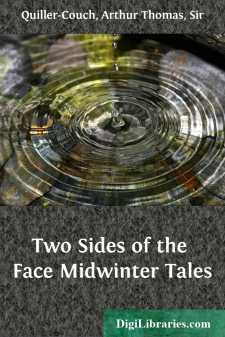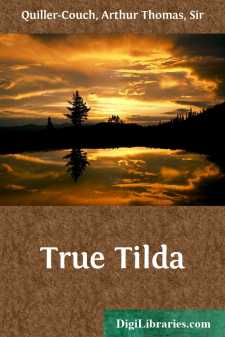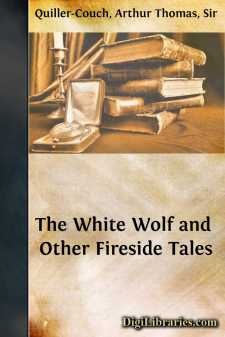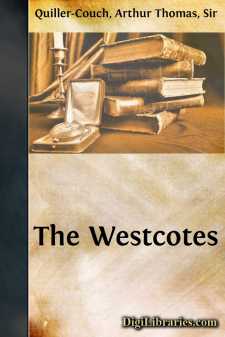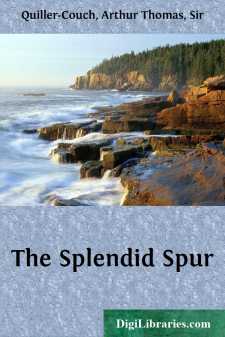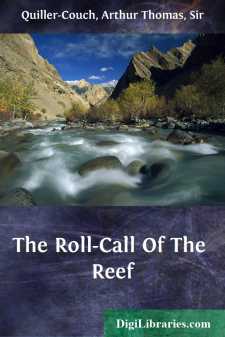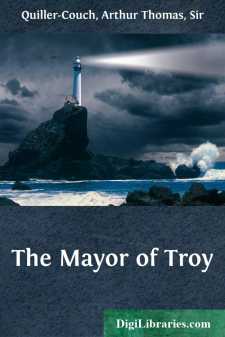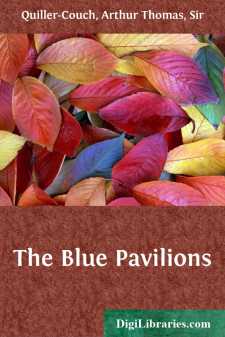Categories
- Antiques & Collectibles 13
- Architecture 36
- Art 48
- Bibles 22
- Biography & Autobiography 813
- Body, Mind & Spirit 142
- Business & Economics 28
- Children's Books 17
- Children's Fiction 14
- Computers 4
- Cooking 94
- Crafts & Hobbies 4
- Drama 346
- Education 46
- Family & Relationships 57
- Fiction 11829
- Games 19
- Gardening 17
- Health & Fitness 34
- History 1377
- House & Home 1
- Humor 147
- Juvenile Fiction 1873
- Juvenile Nonfiction 202
- Language Arts & Disciplines 88
- Law 16
- Literary Collections 686
- Literary Criticism 179
- Mathematics 13
- Medical 41
- Music 40
- Nature 179
- Non-Classifiable 1768
- Performing Arts 7
- Periodicals 1453
- Philosophy 64
- Photography 2
- Poetry 896
- Political Science 203
- Psychology 42
- Reference 154
- Religion 513
- Science 126
- Self-Help 84
- Social Science 81
- Sports & Recreation 34
- Study Aids 3
- Technology & Engineering 59
- Transportation 23
- Travel 463
- True Crime 29
Arthur Thomas Quiller-Couch
Arthur Thomas Quiller-Couch (1863-1944) was a renowned British writer and literary critic, best known for his influential work on English literature. He authored the classic "The Oxford Book of English Verse" and significantly contributed to the field of literary studies through his lectures at the University of Cambridge, where he held the position of King Edward VII Professor of English Literature. Quiller-Couch, often writing under the pen name "Q," was also a prolific novelist and short story writer, celebrated for his skillful storytelling and keen insight into human nature.
Author's Books:
Sort by:
THE ROLL-CALL OF THE REEF. "Yes, sir," said my host the quarryman, reaching down the relics from their hook in the wall over the chimney-piece; "they've hung there all my time, and most of my father's. The women won't touch 'em; they're afraid of the story. So here they'll dangle, and gather dust and smoke, till another tenant comes and tosses 'em out...
more...
A Tale of Wild Justice. I. Beside a high-road in the extreme West of England stands a house which you might pass many times without suspecting it of a dark history or, indeed, any history worth mention. The country itself, which here slopes westward from the Mining District to Mount's Bay, has little beauty and—unless you happen to have studied it—little interest. It is bare, and it comes near...
more...
CHAPTER I AT THE SIGN OF THE GOOD SAMARITAN "That it may please Thee to preserve all that travel by land or by water . . . all sick persons, and young children."—THE LITANY. "I love my love with a H'aitch, because he's 'andsome—" Tilda turned over on her right side—she could do so now without pain— and lifting herself a little, eyed the occupant of the next bed....
more...
I.—THE TALE OF SNORRI GAMLASON In the early summer of 1358, with the breaking up of the ice, there came to Brattahlid, in Greenland, a merchant-ship from Norway, with provisions for the Christian settlements on the coast. The master's name was Snorri Gamlason, and it happened that as he sailed into Eric's Fiord and warped alongside the quay, word was brought to him that the Bishop of Garda...
more...
CHAPTER I THE WESTCOTES OF BAYFIELD A mural tablet in Axcester Parish Church describes Endymion Westcote as "a conspicuous example of that noblest work of God, the English Country Gentleman." Certainly he was a typical one. In almost every district of England you will find a family which, without distinguishing itself in any particular way, has held fast to the comforts of life and the respect...
more...
"Q." A year or two ago it was observed that three writers were using the curiously popular signature "Q." This was hardly less confusing than that one writer should use three signatures (Grant Allen, Arbuthnot Wilson, and Anon), but as none of the three was willing to try another letter, they had to leave it to the public (whose decision in such matters is final) to say who is Q to it....
more...
"Yes, sir," said my host, the quarryman, reaching down the relics from their hook in the wall over the chimneypiece; "they've hung here all my time, and most of my father's. The women won't touch 'em; they're afraid of the story. So here they'll dangle, and gather dust and smoke, till another tenant comes and tosses 'em out o' doors for rubbish. Whew!...
more...
PROLOGUE. Good wine needs no bush; but this story has to begin with an apology. Years ago I promised myself to write a treatise on the lost Mayors of Cornwall—dignitaries whose pleasant fame is now night, recalled only by some neat byword or proverb current in the Delectable (or as a public speaker pronounced it the other day, the Dialectable) Duchy. Thus you may hear of "the Mayor of Falmouth,...
more...
PROLOGUE. A week ago, my friend the Journalist wrote to remind me that once upon a time I had offered him a bed in my cottage at Troy and promised to show him the beauties of the place. He was about (he said) to give himself a fortnight's holiday, and had some notion of using that time to learn what Cornwall was like. He could spare but one day for Troy, and hardly looked to exhaust its...
more...
THE BLUE PAVILIONS. TO A FORMER SCHOOLFELLOW. MY DEAR —, I will not write your name, for we have long been strangers; and I, at any rate, have no desire to renew our friendship. It is now ten years and more from the end of that summer term when we shook hands at the railway-station and went east and west with swelling hearts; and since then no report has come of you. In the meantime you may have...
more...



